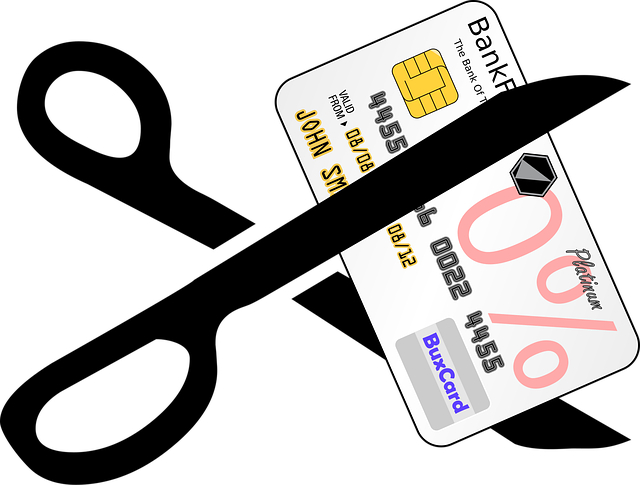Debt consolidation loans through a broker offer entrepreneurs and small business owners a popular solution to manage multiple high-interest debts. By assessing financial situations, credit history, and repayment goals, brokers facilitate informed decisions for personalized debt management plans. Lower interest rates, fixed monthly payments (3-5 years), and control over repayments make debt consolidation loans appealing, especially compared to variable-rate credit card refinances. Brokers help navigate risks and secure the best loan terms for improved financial health, freeing up funds for other expenses or savings goals.
In today’s financial landscape, managing multiple debts can be a complex challenge. For many, a debt consolidation loan or credit card refinance offers a potential solution. This article provides valuable insights from a debt consolidation loan broker, exploring options like loans and refinances, with a focus on advantages, interest rates, repayment strategies, and risk assessment. By understanding these aspects, individuals can make informed decisions to streamline their debts effectively.
- Understanding Debt Consolidation Loans: A Broker's Perspective
- Advantages of Credit Card Refinance for Personal Finance
- Comparing Interest Rates: Loans vs. Credit Cards
- Loan Repayment Strategies: Which Option Suits You Best?
- Risk Assessment: Consolidation vs. Refinancing Your Debt
Understanding Debt Consolidation Loans: A Broker's Perspective

Debt consolidation loans are a popular choice for individuals seeking to streamline multiple high-interest debts into one manageable payment. As a broker, I often work with clients who are overwhelmed by credit card debt and various loan repayments. These loans allow borrowers to refinance their existing debts into a single loan with a potentially lower interest rate, offering both peace of mind and long-term financial savings. This strategy is particularly appealing to entrepreneurs and small business owners grappling with the challenges of managing multiple creditors.
When recommending a debt consolidation loan, I focus on matching clients with reputable lenders who specialize in these products. It’s crucial to explore options like entrepreneur debt relief solutions or small business debt consolidation options. The process involves assessing each client’s unique financial situation, credit history, and repayment goals. By carefully considering these factors, we can help individuals find the best-suited loan terms and a trusted debt consolidator who prioritizes their long-term success. Understanding the market and collaborating with experts ensures that clients make informed decisions, ultimately leading to effective debt management and improved financial health.
Advantages of Credit Card Refinance for Personal Finance

Credit card refinance offers a host of advantages for personal finance management. One of the key benefits is its ability to simplify financial obligations. By refinancing credit cards, individuals can consolidate multiple cards into one with a potentially lower interest rate, making it easier to manage their debt. This simplifies repayment schedules and reduces the administrative burden of keeping track of several card statements.
Additionally, credit card refinance allows for more flexibility in managing unsecured debt consolidation funding. Lower interest rates mean that borrowers can save on interest payments over time, effectively reducing their overall debt burden and enabling them to pay off their loans faster. This strategy can be particularly appealing for those looking to consolidate my loans and reduce debt payments, thereby achieving better financial control and potentially freeing up funds for other important expenses or savings goals.
Comparing Interest Rates: Loans vs. Credit Cards

When comparing debt consolidation options, one of the most critical factors to consider is interest rates. Debt consolidation loans from a broker often offer lower and fixed interest rates compared to credit card balances. This can be a significant advantage as it means saving money in the long run. While credit cards may initially seem appealing with their flexible spending and potential rewards programs, the high-interest rates they charge can quickly add up, especially if the balance is not paid off promptly.
A debt consolidation loan broker can play a strategic role here by helping you find the best rates tailored to your financial profile. They can guide you through various loan options, including those for consolidating private student loans, and create a comprehensive debt management plan. Effective debt reduction techniques often involve refinancing high-interest debts like credit cards into lower-rate loans, which can streamline repayment and free up cash flow for other essential expenses.
Loan Repayment Strategies: Which Option Suits You Best?

When considering a debt consolidation loan vs. credit card refinance, understanding your repayment strategy is key. Both options offer a chance to streamline multiple debts into one, but they differ in how you pay back the principal and interest. A debt consolidation loan broker typically structures a plan where fixed monthly payments are made over a set period, usually 3-5 years. This provides clear predictability and allows for strategic debt management planning by setting aside a specific amount each month.
On the other hand, credit card refinance often comes with variable interest rates and flexible repayment terms. While this can initially lower your monthly payments, it may not be suitable for those seeking long-term financial stability. For students or individuals looking to consolidate my loans strategically, a debt consolidation loan might offer better control over repayments and could be integrated into a broader financial planning strategy.
Risk Assessment: Consolidation vs. Refinancing Your Debt

When considering either a debt consolidation loan or refinancing your credit card debt, it’s crucial to assess the risks involved. Both options can offer significant benefits, such as lower monthly debt and improved cash flow management, but they also come with their own set of challenges. A debt consolidation loan broker can help navigate these complexities by offering expert advice tailored to your financial situation.
For individuals with bad credit, securing a loan for debt consolidation might be more difficult. Refinancing could be a viable alternative, as it doesn’t always require a perfect credit score. However, refinancing may not always lead to the best interest rates, and if managed improperly, it could result in longer repayment periods, increasing the overall cost of your debt. Therefore, it’s essential to weigh the potential benefits of consolidating debts against the risks associated with each method.
When deciding between a debt consolidation loan and credit card refinance, consulting with a debt consolidation loan broker can provide valuable insights tailored to your financial situation. By comparing interest rates, understanding repayment strategies, and assessing risks, you can make an informed choice that best suits your needs. Whether you opt for a consolidation loan or refinance your credit cards, managing your debt efficiently is the ultimate goal, ensuring long-term financial health.
